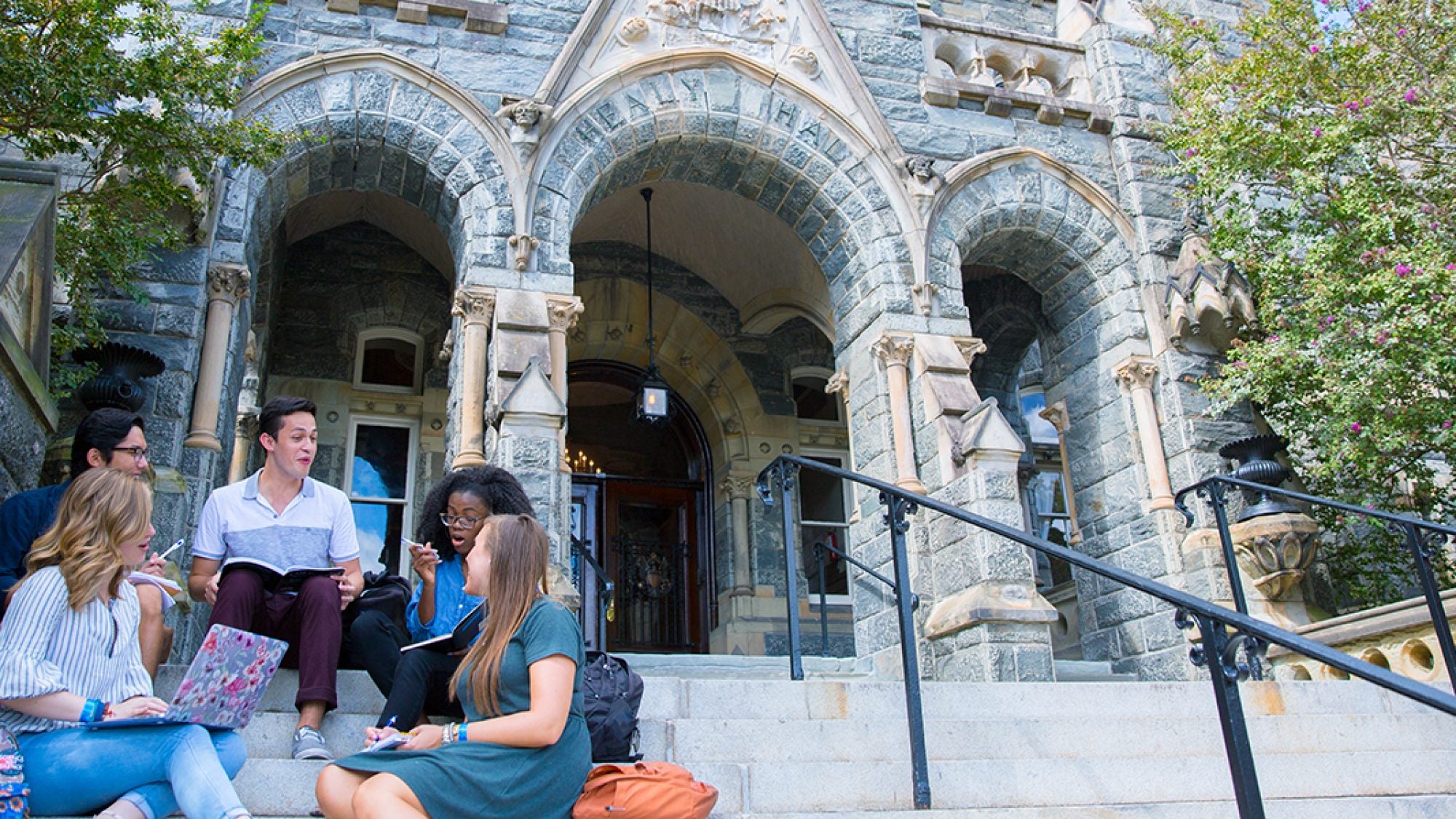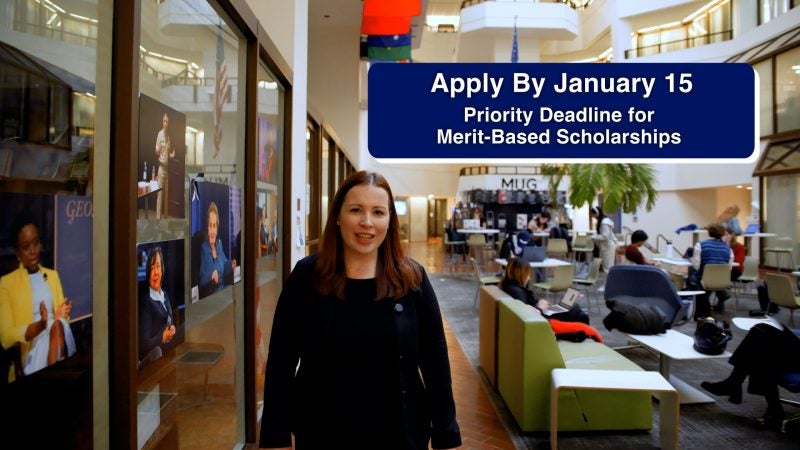Graduate admissions season is here, and the process can feel like navigating a maze of essays, applications and decisions. But don’t worry—you’re not alone. We’ve reached out to students from SFS graduate programs who have been in your shoes to share their best tips and tricks for a rewarding application journey.
Whether it’s mastering the personal statement, finding the perfect recommenders or tackling imposter syndrome, this advice column is packed with insights they wish they’d known when they applied. Also, hear from Stephanie Gage, director of graduate admissions and enrollment management at SFS, who has three helpful tips on how to set yourself up for success.
What aspects of the application process were the most challenging for you, and how did you overcome them?
“The most challenging part of my application was feeling vulnerable in my personal statement. I struggled to feel comfortable in my journey to articulate my story and connect it to my career goals in diplomacy. To overcome this, I sought feedback from mentors, peers and past Pickering Fellows, which helped me refine my narrative and ensure it communicated my values.”
– Muna Sultana (MSFS’26)
“The statement of purpose is short, which in itself is an important challenge.”
– Jean-Baptiste El Khoury (SSP’26)
What advice would you give regarding selecting an SFS graduate program?
“Do your research beforehand! There is a lot of intersection between the different themes and geographical areas each program caters to but also varying degrees of specialization in each. Having a general idea of what you want to do with your degree after you graduate would be especially helpful.”
– Apurva Ramakrishnan (SSP’25)
How did you approach writing your personal statement? Any tips for creating a strong narrative?
“Be yourself, write your own story and talk about that particular aspect of your life that shaped you the most for the person you are today.”
– Marzia Amiri (MFSF’26)
“I asked a lot of my peers and friends for input! Sometimes other people can speak to your strengths better and have helpful perspectives on how you can craft your narrative. I found this helpful especially as someone who had somewhat nontraditional career experience prior to my program.”
– Kritika Sharma (MIMR’26)
What’s one thing you wish you had known before applying to grad school?
“I wish I had understood the intensity of balancing academic rigor with professional development activities like internships and networking in DC. Time management is key!”
– Muna Sultana (MSFS’26)
“Admissions teams are real people that you can actually reach out to.”
– Jean-Baptiste El Khoury (SSP’26)
How can applicants get a realistic sense of what life in a particular program will be like?
“Many programs have admissions fellows who are students actively enrolled in the program and working with the admissions team—so you get the best of both worlds! You can hear all about the program experience, application process and, more generally, life in the DMV from these current students who can offer you some interesting perspectives.”
– Apurva Ramakrishnan (SSP’25)
“Picture yourself in an environment where everyone is at least as good and talented as you are. Now imagine that they all have different backgrounds, have different interests, come from different countries and are accustomed to different cultures. Add a sprinkle of work stress and new friendships to balance it out. It’s a very different environment, one where you get to experience a lot of different emotions. Trying to meet new people and to understand them would be a good exercise, as grad school is a lot about networking.”
– Zeynep Ozharat (SSP’26)
Are you a first-generation graduate student? If so, do you have any unique advice for others who are first-gen?
“As a first-generation student, I know the weight of stepping into spaces where it feels like few people look like you or share your experiences. Recognize that your journey is a testament to resilience and strength. You’ve already overcome barriers just to be here, and that’s your superpower.”
– Muna Sultana (MSFS’26)
“Yes, I am a first-generation student, and neither of my parents has a high school diploma. My advice is not to feel intimidated by students whose parents have higher education. You may encounter peers who have drawn inspiration and guidance from their parents in their academic journey and may be more experienced in certain aspects, but remember that you’ve charted your own path with the strong support of your parents. Be proud of yourself and your parents for the unique strength and resilience that brought you here.”
– Marzia Amiri (MFSF’26)
If you could give one piece of advice to prospective grad students, what would it be?
“As cheesy as it sounds, believe in yourself! This process was nerve wracking for me and there were many times I felt like I was not good enough – find ways to cheer yourself on because that confidence will make a huge difference in your application.”
– Kritika Sharma (MIMR’26)
“Follow your heart and pick whichever excites you the most. I knew what I wanted for a very long time, and every time I see the name of my program now, it gives me butterflies.”
– Zeynep Ozharat (SSP’26)

